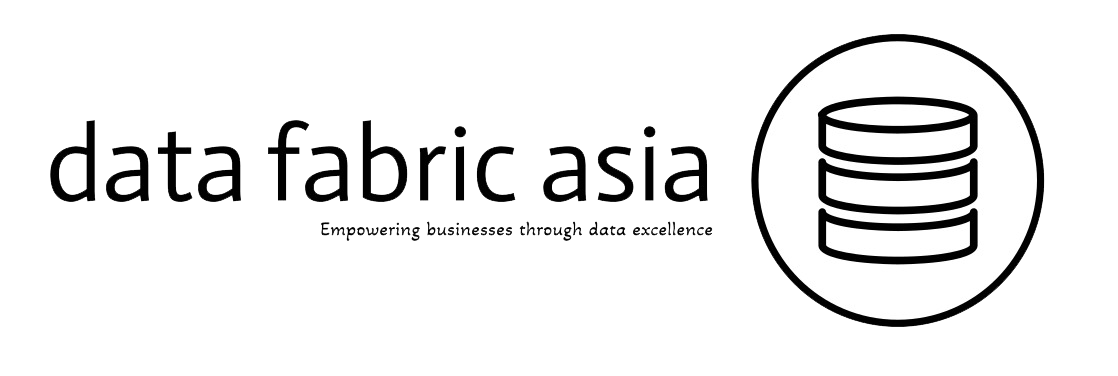In today’s fast-paced business environment, Enterprise Resource Planning (ERP) and Customer Relationship Management (CRM) systems are indispensable tools that drive organizational efficiency and customer satisfaction. However, the increased reliance on these systems for real-time analytics and reporting can strain their underlying databases, leading to performance bottlenecks and system disturbances. This is where MySQL HeatWave steps in, offering a robust solution that integrates seamlessly with existing ERP and CRM systems to enhance performance, scalability, and efficiency without replacing the operational database.
The Critical Role of ERP and CRM Systems
ERP systems consolidate various business processes, including finance, human resources, supply chain, and operations, into a unified system. This integration allows for improved data accuracy, streamlined processes, and better decision-making. Similarly, CRM systems manage customer interactions, sales, marketing, and service-related processes, fostering stronger customer relationships and driving business growth.
Both systems rely heavily on robust databases to store and retrieve vast amounts of data. As businesses grow and their data needs expand, the demand for real-time analytics and reporting becomes crucial. However, traditional databases can struggle to keep up with these demands, leading to slow query performance and system disruptions.
The Challenge of Real-Time Analytics and Reporting
The primary challenge with ERP and CRM systems lies in the need for timely and accurate data analytics. Executives and managers require real-time insights to make informed decisions, while operational teams need up-to-date information to perform their tasks effectively. However, running complex analytical queries on transactional databases can significantly impact system performance.
Performance Bottlenecks
Transactional databases are optimized for handling a high volume of short, write-intensive operations typical of ERP and CRM workloads. However, they are not designed to efficiently process large-scale analytical queries, which are often read-intensive and resource-consuming. This mismatch can lead to performance bottlenecks, where the system becomes overwhelmed by the demand for analytics and reporting.
System Disturbances
When ERP and CRM systems are subjected to heavy analytical workloads, the underlying database may experience increased latency, reduced throughput, and even downtime. These disturbances can disrupt business operations, leading to lost productivity, decreased customer satisfaction, and potential revenue loss. Therefore, businesses need a solution that can handle analytical workloads without compromising the performance of their transactional systems.
Introducing MySQL HeatWave
MySQL HeatWave is an in-memory query accelerator for MySQL Database Service, designed to address the challenges of real-time analytics and reporting. It combines the best of both transactional and analytical processing within a single database system, eliminating the need for separate databases for OLTP (Online Transaction Processing) and OLAP (Online Analytical Processing). Crucially, it does this without replacing the operational database, instead working alongside it to provide enhanced capabilities.
Key Features and Benefits
1. In-Memory Processing: MySQL HeatWave utilizes in-memory processing to accelerate query performance. By storing data in memory, it reduces the time required to retrieve and process information, enabling faster analytics and reporting.
2. Parallel Execution: HeatWave employs a massively parallel processing architecture, allowing it to distribute query workloads across multiple nodes. This parallel execution significantly enhances query performance and scalability.
3. Augmented Platform: MySQL HeatWave integrates with existing MySQL databases, ensuring that operational databases remain intact and focused on handling transactional workloads. This augmentation simplifies data management, reduces operational complexity, and lowers costs.
4. Real-Time Insights: With HeatWave, businesses can run complex analytical queries on live transactional data without impacting system performance. This capability ensures that decision-makers have access to real-time insights, empowering them to make informed choices quickly.
5. Scalability and Flexibility: MySQL HeatWave is designed to scale with your business needs. Whether you are dealing with gigabytes or terabytes of data, HeatWave can efficiently handle the load, providing consistent performance as your data grows.
How MySQL HeatWave Enhances ERP and CRM Systems
Improved Performance
By offloading analytical workloads to HeatWave, businesses can significantly improve the performance of their ERP and CRM systems. The in-memory processing and parallel execution capabilities of HeatWave ensure that even the most complex queries are executed swiftly, without impacting the transactional operations of the underlying database.
Enhanced User Experience
With faster query performance, users can generate reports and gain insights in real-time. This improved responsiveness enhances the user experience, enabling employees to access the information they need without delays. For instance, sales teams can quickly retrieve customer data, marketing teams can analyze campaign performance, and finance teams can generate financial reports on the fly.
Operational Efficiency
HeatWave’s ability to handle both transactional and analytical workloads within a single platform simplifies data management and reduces the need for data movement between different systems. This consolidation leads to increased operational efficiency, as businesses no longer need to maintain and synchronize multiple databases.
Cost Savings
By eliminating the need for separate OLTP and OLAP systems, MySQL HeatWave reduces hardware, software, and maintenance costs. Businesses can achieve significant cost savings by consolidating their data infrastructure and leveraging HeatWave’s scalable architecture to handle growing data volumes.
Real-World Use Cases
Several organizations have successfully implemented MySQL HeatWave to enhance their ERP and CRM systems, achieving remarkable results.
Case Study 1: Global Retailer
A global retailer with thousands of stores worldwide faced performance issues with their ERP system due to the increasing demand for real-time analytics. By integrating MySQL HeatWave, they were able to accelerate query performance by up to 400x, enabling faster inventory management, sales reporting, and demand forecasting. The improved performance also led to enhanced customer satisfaction, as store managers could quickly access accurate data to make informed decisions.
Case Study 2: Financial Services Firm
A financial services firm struggled with slow query performance in their CRM system, impacting their ability to analyze customer data and provide personalized services. MySQL HeatWave enabled them to run complex analytical queries in real-time, resulting in a 300x improvement in query speed. This enhancement allowed the firm to gain deeper insights into customer behavior, optimize marketing campaigns, and improve customer retention rates.
Case Study 3: Manufacturing Company
A manufacturing company needed to streamline their supply chain operations by analyzing production data in real-time. By leveraging MySQL HeatWave, they achieved a 200x increase in query performance, allowing them to monitor production processes, identify bottlenecks, and optimize resource allocation. The real-time insights provided by HeatWave helped the company improve operational efficiency and reduce production costs.
Best Practices for Implementing MySQL HeatWave
To maximize the benefits of MySQL HeatWave, businesses should follow these best practices:
Assess Your Workloads
Before implementing HeatWave, assess your current workloads to identify the most resource-intensive queries and processes. Understanding your data and query patterns will help you design an optimized HeatWave environment tailored to your needs.
Plan for Scalability
As your business grows, so will your data volumes. Plan for scalability by designing a HeatWave architecture that can handle increasing workloads. Consider factors such as data partitioning, indexing, and query optimization to ensure consistent performance.
Monitor and Optimize
Regularly monitor the performance of your HeatWave environment to identify potential bottlenecks and areas for improvement. Utilize HeatWave’s monitoring tools to gain insights into query performance and system health. Continuously optimize your queries and data structures to maintain peak performance.
Train Your Team
Ensure that your IT and data teams are well-versed in MySQL HeatWave’s capabilities and best practices. Provide training and resources to help them effectively manage and optimize the HeatWave environment.
Leverage Cloud Integration
MySQL HeatWave is available as a managed service on Oracle Cloud Infrastructure (OCI). Leveraging cloud integration can simplify deployment, management, and scaling of your HeatWave environment. Additionally, OCI provides robust security features to protect your data and ensure compliance with industry regulations.
Conclusion
In an era where real-time analytics and reporting are critical to business success, MySQL HeatWave offers a game-changing solution for ERP and CRM systems. By combining transactional and analytical processing within a single platform, HeatWave addresses the performance challenges associated with traditional databases, enabling businesses to achieve faster query performance, enhanced user experience, and operational efficiency.
The integration of MySQL HeatWave allows organizations to harness the full potential of their ERP and CRM systems, providing real-time insights that drive informed decision-making and business growth. With its scalability, flexibility, and cost-saving benefits, MySQL HeatWave is poised to revolutionize the way businesses manage and analyze their data.
As more organizations adopt MySQL HeatWave, the future of ERP and CRM systems looks brighter than ever. By embracing this innovative technology, businesses can stay ahead of the competition, deliver exceptional customer experiences, and achieve new levels of operational excellence.
—
Feel free to share your thoughts and experiences with MySQL HeatWave in the comments. How has it transformed your ERP and CRM systems? What challenges did you overcome? Let’s continue the conversation and explore the limitless possibilities of MySQL HeatWave together.

